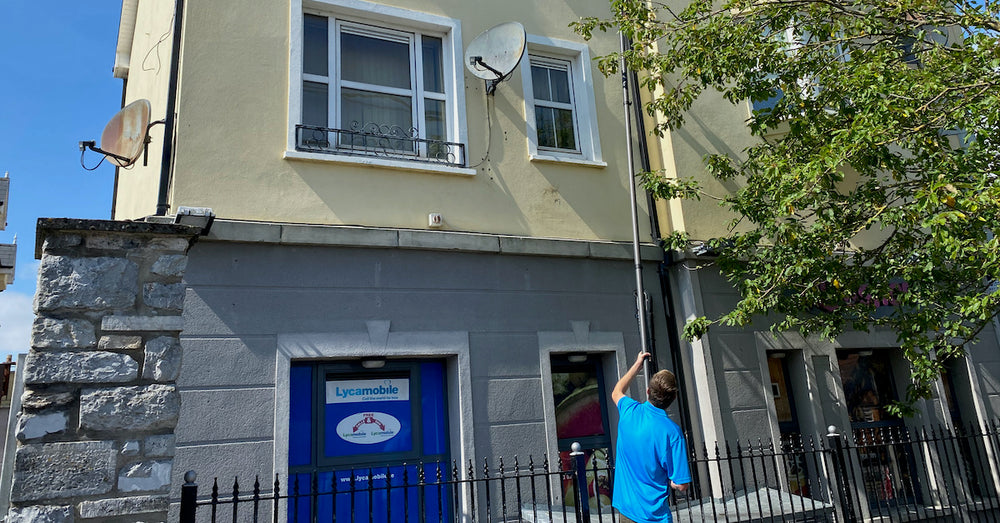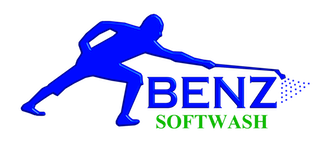
The fact is that no sodium hypochlorite (SH) based softwash solution can, by itself, kill all the spores on, and in, a porous surface. And sodium hypochlorite offers zero protection against re-colonisation.
Benz Bio Cleanze on the other hand, because of it's enhanced "wetting" characteristics, seeps deeper into the surface, killing any spores that Benz Lightning Cleanze did not get to. Some of the active ingredient will remain in the substrate, offering residual protection against re-colonisation.
No hypo mix, pressure washing, or cleaning only with a surfactant can give this long-term biocidal protection.
Quick tip: If you want to know more about the "wetting" characteristics of our softwash products, click here to learn about capillary action.
What are the benefits of using two complementary softwash biocides?
Treating first with Lightning Cleanze kills off the vast majority of the spores, particularly those on the surface, and gives your customers what they want – a near instantly clean property.
It also means that Bio Cleanze has relatively few spores to kill, meaning that less of the active ingredient is used up in the initial treatment process.
Therefore, more of the active ingredient remains in the substrate, increasing the degree of long-term biocidal protection against re-colonisation.
Bio Cleanze completes a soft washing job, assuming your customer is willing to pay a little extra for the very best soft wash treatment.
Of course if your customer only wants a quick clean before selling their property they likely will not want to pay for the increased long-term protection that Bio Cleanze offers. They simply won't expect to be in the property long-enough to enjoy the results.
Quick tips:
-
Bio Cleanze keeps working for 6-12 months following application, ensuring that the surface becomes increasingly clean through time.
- Bio Cleanze is the main product used when offering your "Clean & Maintain" ongoing softwash maintenance programme.
- Lightning Cleanze does it's work fast, in 30-60 minutes but does not continue to clean the surface. No sodium hypochlorite product or mix can offer long-term protection against re-colonisation because the nature of the chemical itself means that it simply is not possible.
How can you know which softwash chemical to use?
To determine which softwash chemical to use, in what combination, at what dilution strength, it's necessary to appraise the needs of every contract on an individual basis.
When deciding on which softwash chemical to use, always take into account:
- The severity of the colonisation
- The depth of the colonisation
- How long the colonisation has been allowed to grow into the substrate since it was last cleaned
- The local environment
- And lastly, but very importantly, what your customer wants you to achieve for them, how quickly, and how much they are willing to pay.
We hope this information is helpful and sincerely wish you great success in your soft washing business,
Ben, Leo, Fiona, Stevie & Anthony
PS: The exception to this sequence of softwash treatments is when treating sand and cement render. Click here to learn about soft washing sand and cement render



Leave a comment